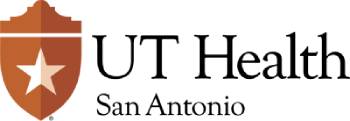
By Will Sansom and Joe Michael Feist
When Hurricane Harvey hit the Texas Gulf Coast in August as a Category 4 storm, it devastated communities in an area that is already medically underserved, with many residents over age 65 and with limited access to care.
Immediately, the university community responded. Faculty and students traveled to Houston’s hardest-hit areas to provide urgent health care. The UT Police Department sent relief commissioned police officers to deliver supplies for their counterparts at The University of Texas MD Anderson Cancer Center in the Texas Medical Center. Students, staff and faculty donated untold units of blood.
Support has continued in the months since, with teams from the School of Nursing traveling twice a month to Rockport and surrounding communities to perform community needs assessments, health evaluation of individuals and families, vaccinations, health care coordination, case management, counseling and other necessary
health services.

Their work is supported by a $200,000 donation from singer Paul Simon, co-founder of the Children’s Health Fund (CHF) and his wife, singer Edie Brickell. The CHF contributed an additional $15,000.
The CHF is a nonprofit organization that provides health care to children and families through mobile medical units around the country.
“Mr. Simon and his wife had a vision to provide health and social services to the area by the simplest means,” said Cindy Sickora, D.N.P., RN, vice dean for practice and engagement in the School of Nursing, who coordinated the school’s relief effort. “We assured [them] that we will do our utmost to help members of the area’s communities, most especially the uninsured, children and the elderly.”
Among other preventive measures, the teams are providing vaccines to senior adults, who often allow immunizations such as tetanus to lapse. Hepatitis A, shingles, influenza and pneumonia vaccines are also being administered.

A team also canvassed neighborhoods to ensure the well-being of homebound senior adults and others. During these visits, health information was distributed.
Team members also are working to identify community mental health needs.
The goal is to reach a minimum of 1,000 people in need of health resources. Once the project is complete, all services will be transitioned to sustainable health care delivery systems in the area.
“We are committed to providing compassionate care to those most in need,” said Eileen T. Breslin, Ph.D., RN, FAAN, dean of the School of Nursing. “We have experienced, dedicated nurses who can deliver the competent care that people need.”
Faculty from the School of Nursing have been working with disaster relief teams for many years as part of a population health curriculum, and many faculty were part of relief efforts in the aftermath of Hurricanes Katrina and Sandy.
“This type of service is in our DNA as nurse leaders,” Dr. Breslin said.
